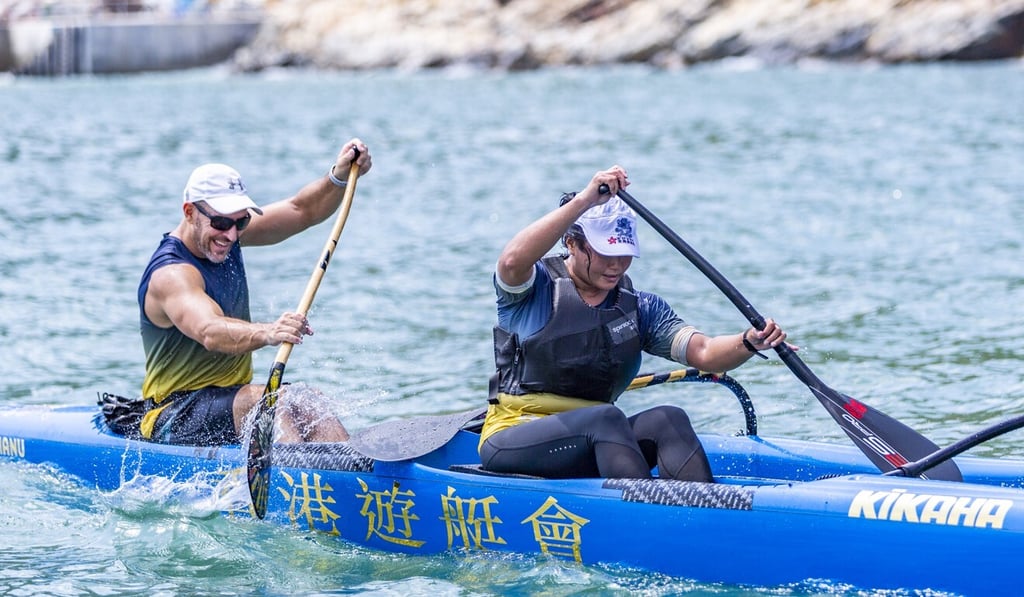Paddlers release pent up energy with epic swells in The Bays race after two postponements due to coronavirus
- Outriggers, surf skis and coastal rowers fight waves and wind in the first race for months as they traverse Hong Kong’s south side
- Race organisers urge paddlers to become bastions of the environment, communicating the plastic pandemic

Hong Kong’s paddling community finally returned to racing after months of cancellations and postponements as outriggers, surf skis and ocean rowers pulled through an epic 33km relay race across the south side of Hong Kong on Saturday.
“There’s so much pent up demand for an event, even if it’s socially distanced. The coastline and environment ... it’s why it’s so great to live in Hong Kong,” said Doug Woodring, race director.
The relay race started on Stanley beach. The first leg headed out to Cape D‘Aguilar and then round the Stanley Peninsular to St Stephen’s beach, where the rowers and paddlers switch places with their teammates for leg two.
The teams then headed out to a buoy, around Round Island and into Repulse Bay, where they switched back to the first pair, who went around Round Island again. The final of four legs saw the rowers and paddlers head towards Ocean Park, through Deep Water Bay finishing at the Royal Hong Kong Yacht Club, Middle Island.

Participants had to wear masks on the beach or they would be disqualified. They socially distanced and boats were no larger than singles or pairs. Bigger teams were not allowed due to the restrictions.